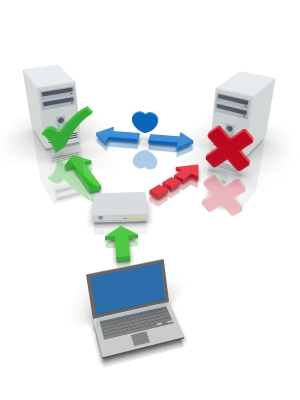 According to experts, disaster recovery (DR) is how a business restarts itself following a disruptive incident that is natural, man-made, or a systems failure. On the other hand, business continuity implies a more comprehensive consideration of how your business continues to operate not only following a disaster, but also the departure of a key member of your management team or department head or any other incident or event which could interfere with daily operations.
According to experts, disaster recovery (DR) is how a business restarts itself following a disruptive incident that is natural, man-made, or a systems failure. On the other hand, business continuity implies a more comprehensive consideration of how your business continues to operate not only following a disaster, but also the departure of a key member of your management team or department head or any other incident or event which could interfere with daily operations.
Recently, we have witnessed the severe impact that weather has had on entire communities, their people, property, and infrastructure. While these tragic events certainly get our attention and cause us to reevaluate, reinforce, and rehearse our existing disaster plans, do we really give due diligence to planning for business continuity (BC)? To most people, BC and DR go together. That being the case, you will be well served to consider particularly the role IT can play to insure that any interference to your business's work flow is as small as possible.
Stepping back and examining the possible consequences of each type of adverse incident is an important step in performing a business impact analysis (BIA). By doing so, you can anticipate and plan specifically for each such event. Handling the consequences of a fire is much different than handling the sudden departure of the corporate IT manager or payroll manager.
First, you need to consider your most valuable asset – people. After a disruptive event, how will your employees communicate, where will they work, and how will they continue to perform their jobs? Who needs to take the leadership role and under what circumstances? What aspects of the workflow are essential and how will they continue?
Second, determine which systems, processes, and business units are essential. Particularly when it comes to IT assets and resources, you should consider not only your internal and contracted resources and assets, but also the businesses which develop and support the critical software applications you use. For example, while IT Asset Management is useful, it may fail to track which software versions your business is using.
Recent developments in technology, such as virtualization, cloud computing or other data center technology-enabled business solutions, social media, or mobile devices, can facilitate business continuity.
This blog cannot begin to cover all aspects of BC/DR, but anticipating, planning for, and rehearsing how you will handle a disruption to your business is well worth the effort, time, and money. Just ask someone who didn’t. Keep in mind that IT plays a major role and should be an essential part of your planning.
What are your doing to insure BC in your business? To learn more about how PCT can help, contact us.
/Prime-Care-Technologies-Logo.png?width=191&height=55&name=Prime-Care-Technologies-Logo.png)


 Prime Care Technologies wishes you a Happy New Year. I once had a boss whose mantra was, “All problems can be viewed as opportunities.” That being the case, then 2012 should be an amazing year of opportunities for business in general and long term care specifically. I encourage you to look at all of your “opportunities” and to explore how IT can help you convert those opportunities into gains.
Prime Care Technologies wishes you a Happy New Year. I once had a boss whose mantra was, “All problems can be viewed as opportunities.” That being the case, then 2012 should be an amazing year of opportunities for business in general and long term care specifically. I encourage you to look at all of your “opportunities” and to explore how IT can help you convert those opportunities into gains. Over the last several months, this blog has covered topics focusing on various aspects of IT and its impact on long term care. In our
Over the last several months, this blog has covered topics focusing on various aspects of IT and its impact on long term care. In our  I know it’s late in the day and many of you are already heading to your turkey feast destination or making last-minute preparations, but I think expressing gratitude is never too late - or too early for that matter. First, if not for the vision, talent, dedication, and hard work of so many, we would not enjoy the explosion of opportunities that information technology offers us. Whether it’s for entertainment, checking on one’s health, mining data, checking on the weather or road conditions, tracking finances, operating a business, promoting ideas, products, and services, or just meeting or reconnecting with friends, IT is everywhere. Some may argue that IT may have complicated our lives, but in the long run, our lives, our play, our work, even our worship have been positively impacted and enriched. For this, we should be very grateful.
I know it’s late in the day and many of you are already heading to your turkey feast destination or making last-minute preparations, but I think expressing gratitude is never too late - or too early for that matter. First, if not for the vision, talent, dedication, and hard work of so many, we would not enjoy the explosion of opportunities that information technology offers us. Whether it’s for entertainment, checking on one’s health, mining data, checking on the weather or road conditions, tracking finances, operating a business, promoting ideas, products, and services, or just meeting or reconnecting with friends, IT is everywhere. Some may argue that IT may have complicated our lives, but in the long run, our lives, our play, our work, even our worship have been positively impacted and enriched. For this, we should be very grateful.